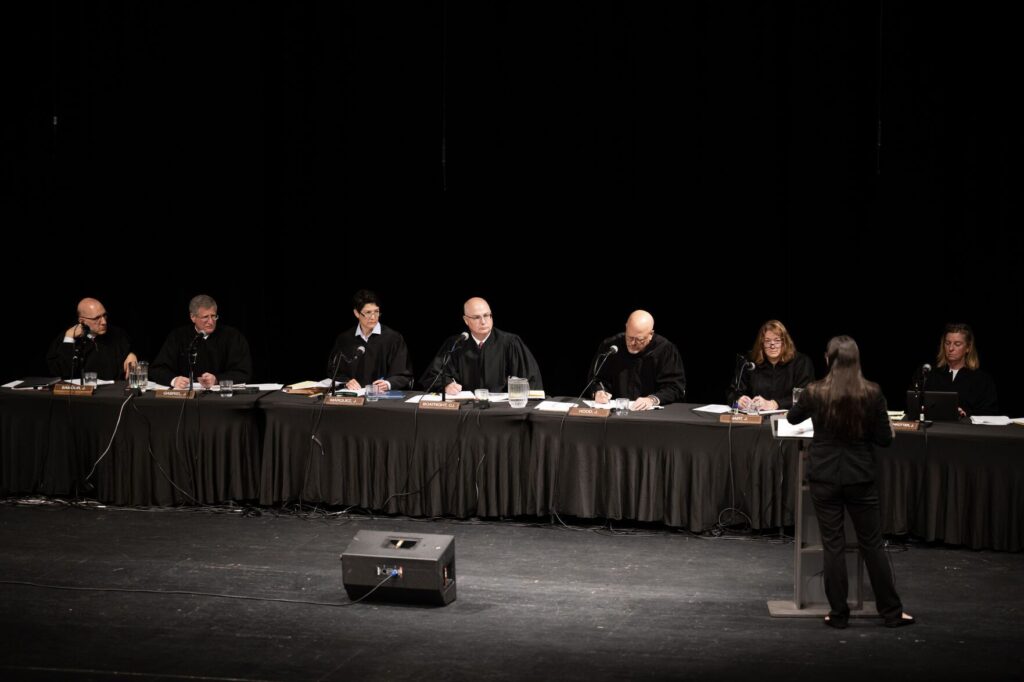State Supreme Court ends procedural move for avoiding liability

The Colorado Supreme Court has ended a procedural maneuver that companies may use to get certain negligence claims against them dismissed.
On Monday, the justices decided that organizations that admit liability for their employees’ actions may not evade a plaintiff’s legal claim against the organization for its own negligent conduct. The opinion, authored by Chief Justice Brian D. Boatright, reversed a trial court judge’s decision to throw out a negligent hiring claim for the death of a newborn.
“Employers can’t use this procedural mechanism to get out of claims they should be responsible for. I think this is a plaintiff-friendly ruling,” said Julian G.G. Wolfson, a lawyer with HKM Employment Attorneys in Denver.
However, the ruling itself served more to reaffirm the state of the law than to redefine it. Earlier this year, Gov. Jared Polis signed legislation that repealed what is known as the “McHaffie Rule,” and now enables plaintiffs to bring claims directly against an organization even when it asserts liability for employees’ actions. The law did not specify that it applied retroactively.
In the case at hand, Erica Murphy Brown and Steven Brown went to Denver Center for Birth and Wellness in May 2018 for the birth of their child, but the baby died during labor. The Browns sued, claiming the birthing center and nurse-midwife Shari L. Long Romero failed to appropriately monitor Erica Brown, did not recognize the signs of distress or transfer Brown to a hospital when necessary. In essence, the center and Long Romero were negligent in causing the child’s death, according to the Browns.
Specifically, one of the allegations was against the birthing center for the negligent hiring of Long Romero. The Browns claimed that she had an extensive history of professional misconduct, as well as deceit and substance abuse. The Browns believed the center knew or should have known about Long Romero’s disciplinary record when it hired her.
An Arapahoe County District Court judge dismissed the Browns’ negligent hiring claim, a decision that hinged on the legal principle of vicarious liability. The birthing center acknowledged Long Romero was an employee who acted within the scope of her duties during the alleged wrongdoing, though it did not admit that she was actually negligent.
But the Browns had not made a claim of vicarious liability against the birthing center. Instead, the district court judge had applied the “McHaffie Rule” in deciding that the Browns could not sue an organization directly when there was an acknowledgement of vicarious liability for the organization’s employee. The Browns appealed directly to the Supreme Court, which reversed the decision.
The birthing center had contended that the Browns were bringing redundant claims against it and potentially duplicating the damages they might receive from a jury. In a brief supporting the center, the healthcare industry group Coloradans Protecting Patient Access argued the Browns were trying to get around legal limits on damages, and that a decision in their favor would result in more medical malpractice lawsuits and increase costs to birthing centers.
But the Colorado Trial Lawyers Association, supporting the Browns, maintained that it was necessary to allow plaintiffs to hold organizations accountable for their own actions, separate from any wrongful act of their employee.
“The reason that this was a critical policy matter is because if the Colorado Supreme Court had let the trial-level court’s decision in Brown stand, a company could entirely shield itself from liability for a harm committed by its employee by simply admitting that its employee was operating within the course and scope of their employment at the time that they caused harm to someone,” said Ariel B. DeFazio, an attorney with the employment law firm Sweeney & Bechtold. “Although the person harmed could still bring a claim against the employee, they would be left without any claim or recourse against the company itself.”
While the General Assembly changed the law this year, the justices’ decision served to officially reverse the lower court’s ruling made prior to the 2021 legislative session.
The case is Brown v. Long Romero et al.
Colorado Politics Must-Reads:













